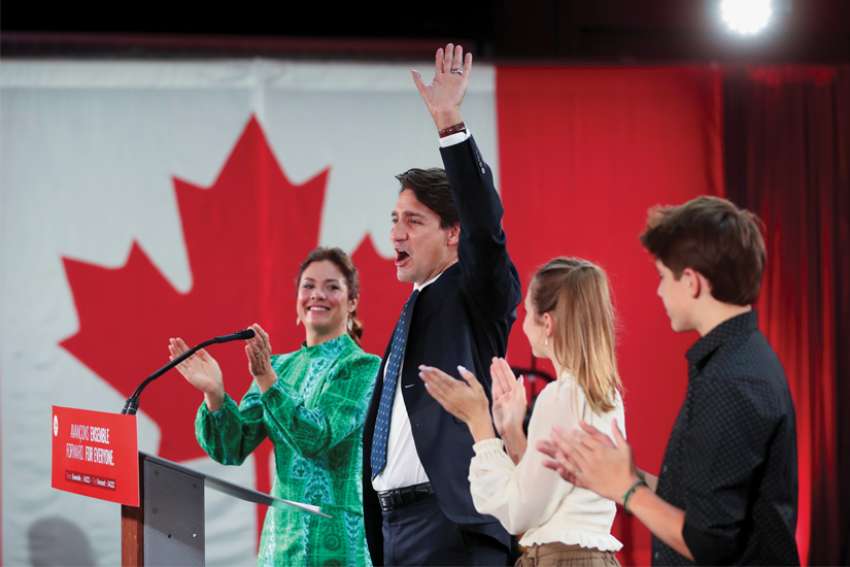We began the five-week election journey with a Liberal minority government and have come out the other end with another one, albeit humbled by an electorate clearly not happy about going to the polls in a pandemic, nor with its unspoken assumption that a majority government was within its grasp.
So, what can we expect out of this 44th Parliament?
First, the bad news. On abortion, it will not be introducing any laws to regulate it. On euthanasia, legislation has already been introduced to make assisted suicide available to minors and those with mental issues. On conscience rights, it upholds the principle that medical professionals who object to abortion or euthanasia must lay those concerns aside and be part of the process, at least through referrals.
On the environment, the government is committed to ending plastic waste by 2030 and hit net zero emissions by 2050, promises $2.6 billion over seven years for homeowners to upgrade energy efficiency, and pledges to plant two billion trees over 10 years in partnership with local authorities.
When it comes to taking care of families, the promise list includes $10-a-day child care, hiring 50,000 personal support workers and putting $3 billion in over five years to support long-term care homes.
Sadly, Indigenous issues seemed to take a back seat during the election, but the last federal budget promised $18 billion over five years to improve the lives of Indigenous communities. Parliament also committed to implementing the UN Declaration on the Rights of Indigenous Peoples.
We will hold this government to its promises to improve family life, to enhance the lives of our elderly, to create more jobs and homes, to meet its goals for protecting the environment, to continue the path of reconciliation with Indigenous peoples. We will likewise remain vigilant in making our views known on euthanasia, abortion and conscience rights, to push for policies that reduce poverty, protect life and preserve religious freedom. Civil, open dialogue is essential.
Catholics and Catholic social teaching must have a place on the political stage. That does not mean forming a separate political party, but rather working with politicians from all stripes in creating a vision of the common good. We know religion has its place in the public square, that the values embedded in our faith are the values that form the bedrock of a just and prosperous society. We do not need to be a politician to be heard.
On Sept. 20, the people sent a clear message to those in power: Get back to the work. Canada doesn’t need majority governments to get things done. Where there are differences, compromise; where there is need, address it; where there is wrong, make it right. There is much work ahead.
We will not always find ourselves on common ground, but we pray the common good will be served.


